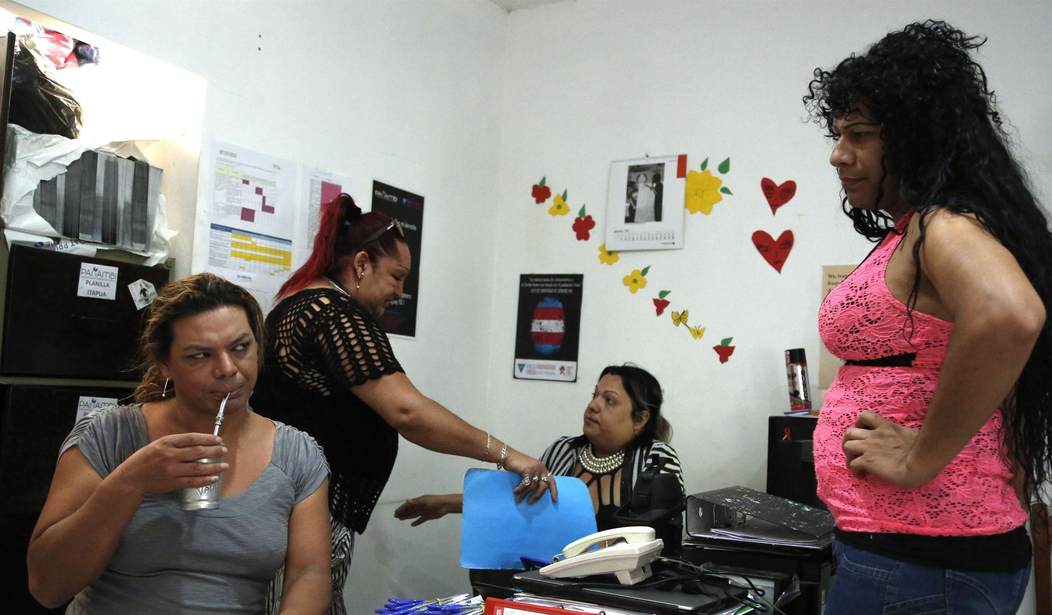The U.S. Court of Appeals for the 6th Circuit issued a ruling upholding laws passed in Tennessee and Kentucky banning “gender-affirming care” for children. The ruling rejected a challenge brought by families of children suffering from gender dysphoria.
This decision echoes a similar ruling in Alabama and has further ignited the debate surrounding the use of “gender-affirming care” on minors.
The court made its ruling on Thursday:
A federal appeals court on Thursday allowed Tennessee and Kentucky to enforce laws banning gender-affirming medical care for minors, such as puberty blockers, hormones and surgery.
By a 2-1 vote, the Cincinnati, Ohio-based 6th U.S. Circuit Court of Appeals rejected a challenge by families of transgender children who had argued that the bans discriminated on the basis of sex.
The ruling is the second by a federal appeals court upholding such laws, after the 11th Circuit ruling revived an Alabama law. On the other side of the ledger, federal district courts in Arkansas, Florida, Georgia and Indiana have overturned such bans, as has a state court in Montana.
Supporters of the bans argue that “gender-affirming care,” which includes the use of puberty blockers, hormones, and even surgical treatments, has not been definitively shown to benefit the mental health of children and actually poses a risk to their long-term well-being. They insist that too many medical professionals have rushed into using these methods without taking time to truly understand the underlying issues that lead to gender dysphoria among their young patients.
On the other hand, those supporting the “gender-affirming care” model argue that the treatments are appropriate and potentially life-saving for kids who are having issues with their gender. They argue that the court’s decision infringes on the rights of parents to make medical decisions for their children.
Tennessee Attorney General Jonathan Skrmetti celebrated the ruling, calling it a “win for democracy,” emphasizing the importance of dealing with these matters through elected officials. However, the matter is far from settled as many still believe giving kids puberty blockers, hormones, and even irreversible surgical treatments are helpful.
In other areas of the country, the battle is still raging. Federal district courts have struck down similar laws in Florida, Georgia, and Arkansas. The absence of a cohesive legal approach to this issue has caused some confusion and anxiety among parents of transgender children, who are uncertain about their rights to use the “gender-affirming care” method.
Even further, more studies coming out of Western Europe show that “gender-affirming care” is not as beneficial as proponents suggest.
The United Kingdom’s National Health Service published the findings of a study showing that “gender-affirming care” either has deleterious effects on children’s mental health or no effect whatsoever.
A third of trans children treated with puberty blockers had their mental health deteriorate while on the medication, a new analysis of a landmark study reveals.
The original study found that 44 children, aged 12 to 15, who took the controversial drugs experienced no change — good or bad — to their mental health.
This report, produced by experts from the NHS's Gender Identity Development Service (GIDS) at Tavistock and University College London Hospitals (UCLH) in 2021 eventually led to a lowering of the age children could access puberty blockers.
But a fresh analysis of the data used in the report found 34 per cent of the gender-questioning youth saw their mental health deteriorate while using the drugs.
This compared to 29 per cent who had their mental health improve and 37 per cent who experienced no change.
Countries like the United Kingdom, Finland, Denmark, France, Norway, and others have pulled back from using “gender-affirming care” on children after having employed this approach for decades before it became fashionable in the United States. Instead, they are reverting back to talk therapy and other methods of treating children suffering from gender dysphoria.
Another important development is the trend of detransitioners, people who underwent “gender-affirming care” as children but then later reversed the process, filing lawsuits against medical facilities they accuse of rushing them into puberty blockers and surgery without properly informing them and their parents of the negative consequences that could result.
The battle is far from over as the nation grapples with finding the best way to help kids in this position.














